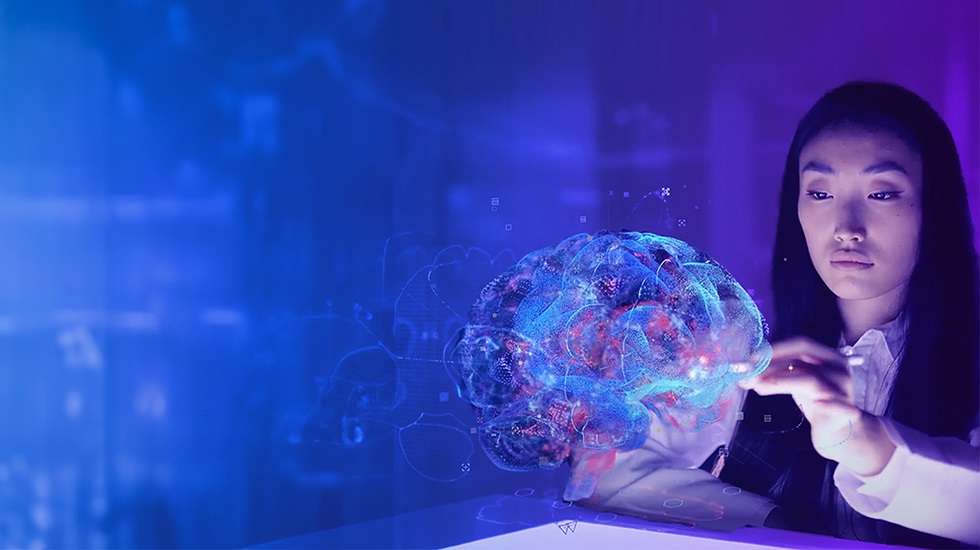Get on board or get left behind
Visionary Internal Audit practices are charging ahead with advanced generative AI solutions.

In today’s rapidly evolving technological landscape, generative artificial intelligence (GenAI) has emerged as a catalyst for technological advancement in internal audit. While many teams have access to GenAI tools, visionary CAEs have outgrown off-the-shelf solutions. They recognize the revolutionary nature of this technology and seek transformational outcomes that go beyond incremental productivity enhancements.
Dive into our thinking:
Get on board or get left behind
Download PDFGenAI as a Catalyst for Technological Enablement
While many IA teams have access to GenAI tools, visionary CAEs recognize that GenAI is just one piece of the puzzle. They view it as a powerful tool that works in synergy with analytics, automation, workflow tools, audit management solutions, and other technologies. By adopting a holistic approach to technology-enablement, IA teams can unlock the full potential of GenAI and deliver value to stakeholders beyond incremental productivity gains.
Setting Clear Objectives for GenAI Implementation
To maximize the benefits of GenAI, it is crucial to define clear objectives. Metrics such as the percentage of audits utilizing analytics or the goal of producing more insightful audit reports may fall short of expectations. Visionary CAEs understand the importance of prioritizing outcomes and making strategic trade-offs. They consider factors such as time, scope, and cost to ensure targeted outcomes align with the organization's goals. By avoiding ambiguity and setting clear objectives, IA teams can achieve audacious results.
Harnessing the Power of Prompt Engineering
Prompt engineering is a fundamental practice that enhances the relevance and quality of GenAI responses. While most users grasp the basics of prompt engineering, there is immense potential for sophistication. Verbose prompting, which provides additional context, and few-shot learning, which incorporates examples into prompts, are two effective approaches. IA teams can also employ persona-based prompting, where GenAI applications take on specialized roles to provide unique perspectives. By mastering advanced prompt engineering techniques, IA teams can optimize the outputs of GenAI.
Building Prompt Libraries for Efficiency and Consistency
Leading IA functions have started creating prompt libraries, repositories of prompts that all team members can access. Prompt libraries offer several advantages, including reducing the time spent on prompt engineering, providing best practices for consistent results, and enabling auditors to leverage complex prompting approaches. These libraries can take various forms, from simple spreadsheets to interactive dashboards or applications. By implementing prompt libraries, IA teams can streamline their GenAI experience and transition from an execution mindset to a transformation mindset.
Streamlining User Experience with Applets
To further enhance the user experience, innovative IA teams are moving away from manual prompt entry. They are developing applets that serve as front-ends to GenAI applications, allowing users to fill out forms with checkboxes, dropdown menus, and other controls. The information entered into these applets is used to generate prompts automatically, incorporating incremental information to improve performance. By enabling auditors with applets, IA teams can reduce the need for extensive training and embed strong prompt engineering into a smooth and consistent experience.
Leveraging Embeddings for Enterprise-specific Information
While prompt engineering is crucial, GenAI applications typically lack access to specific enterprise information. Embeddings address this limitation by serving as knowledge repositories for GenAI applications. Whether it's a single document, a group of documents, a database, or a collection of images, embeddings provide relevant information to enhance GenAI responses. Retrieval Augmented Generation (RAG) solutions leverage embeddings to retrieve information and improve the accuracy and scalability of GenAI applications. By harnessing embeddings, IA teams can pave the way for more automated auditing processes.
Knowledge Assistants and the Power of RAG Solutions
RAG solutions not only enhance GenAI capabilities but also enable the creation of knowledge assistants. These chat bots have access to domain-specific data and information, facilitating quick access to IA methodologies, data analytics, regulatory insights, and more. Creating knowledge assistants is a low-effort endeavor, as GenAI applications can be configured to use any combination of documents in a set of folders on a computer or collaboration site.
The future of AI is now.
Our new article explores how innovative CAEs and their teams are using GenAI to enhance their effectiveness and efficiency. They utilize GenAI for tasks such as comparing control matrices, creating audit program guides, testing internal controls, and generating findings. The paper emphasizes the importance of incorporating GenAI into the IA function to drive value and mentions its integration into major technology platforms. It also highlights the business value generated by applications developed using LLMs. IA leaders are urged to adopt these technologies to maintain credibility, address challenges, and attract talent.
KPMG can help.
KPMG has been recognized as the top provider for quality in AI advice and implementation services in a survey conducted by Source. We have also been named Supplier of the Year by Microsoft in 2024. KPMG has established the Google Cloud Center of Excellence to accelerate the adoption of GenAI technologies and is recognized as a leading provider of GenAI services. We offer various GenAI services for IA teams, including technology enablement strategy, use case development, enabled audits, and AI governance audits. With a team of over 15,000 risk professionals, we can tailor our experiences and solutions to help organizations navigate GenAI confidently.
Explore more KPMG Trusted AI insights

IT Internal Audit Planning for 2025
Key considerations and topics as you prepare your IT internal audit plan

Transforming internal audits through the power of AI
AI and data analytics are reshaping internal audits and requiring development of new strategies for effective adoption and integration.

How risk and compliance can accelerate generative AI adoption
Harness the power of generative AI in a trusted manner

Governing AI responsibly
Discover how risk professionals can develop an effective AI governance model
Contact us: Regional leads
Midwest
Kristofer Canto
Manager Advisory, Climate, Data & Tech, KPMG US
Alexandra E Miller
Sr Associate Advisory, ESG Hub, KPMG US
West
Sara Lopez
Sr Associate Advisory, ESG & Climate Advisory, KPMG US
Vivian Chen
Sr Associate Advisory, Accounting Advisory Services, KPMG US
Southwest
Aiden Barenholtz
Sr Associate Advisory, Climate, Data & Tech, KPMG US
Southeast
Cassie Bleick
Sr Associate Advisory, Internal Audit & Entrprise Risk, KPMG US
Breonna Myers
Manager Audit, Center for Audit Solutions, KPMG US
Northeast
Anya Nayak
Sr Associate Advisory, Customer & Operations – Financial Services, KPMG US
Alejandra Gonzalez Vargas
Associate Advisory, Transformation Delivery – Financial Services, KPMG US
Amy Chan
Advisory, Governance, Risk and Compliance, KPMG US
Meet our team
